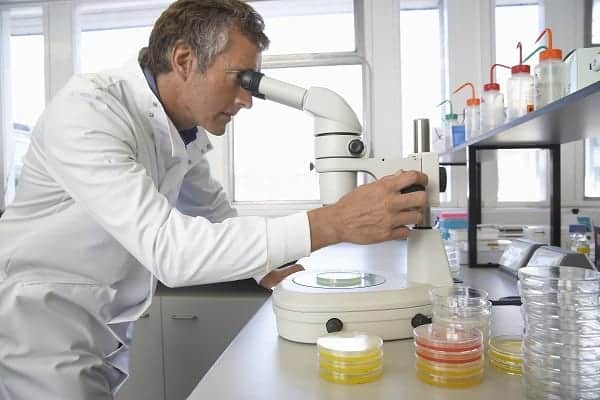It wasn’t really all that long ago that addiction was thought of as a moral failing on the part of the addict or alcoholic. For generations, there was a stigma attached to addictive disorders that became a barrier that prevented millions of people from getting the professional treatment that they needed. Today, addiction is a medically-recognized disease, and the best drug and alcohol recovery programs employ evidence-based treatment strategies that are grounded in sound, measurable scientific principles. Let’s look at what the top national agencies and the latest scientific studies have uncovered about addiction:
The Latest from the National Institute on Drug Abuse
“Thus, reexamining how we talk about substance use disorders and those who suffer from them is an important step in overcoming the misconceptions and moralizing that have hindered access to treatment and compassionate recovery supports in our society.” ~ Dr. Nora Volkow, Director of the NIDA, “Rethinking How We Talk about Addiction”
- Breaking it down—There is a call among mental health practitioners to change the addiction-related terms used by society – “addict”, “alcoholic”, and even “substance abuser”, because each of those implies a moral failure, rather than a medical problem.
- Why is this important? – Only about 1 in 10 people who meet the criteria for an addictive disorder ever get the help that they need, largely because of the stigma attached. Changing the way we TALK about addiction may change the way we DEAL with addiction.
The Latest from the National Institute on Alcohol Abuse and Alcoholism
The assessment framework that we describe recognizes the great advances that continue to be made in our understanding of the neuroscience of addiction. These advances underscore how much we know about the core neurobiological manifestations of addiction in people.” ~Dr. George F. Koob, Ph.D., Director of the NIAAA, “Scientists Propose Neuroscience Framework for Diagnosing Addictions”
- Breaking it down –Scientists want to change the way that addiction is diagnosed – and therefore treated. Instead of a diagnosis being a simple “yes” or “no”, researchers propose assessing the patient’s addiction-related behaviors, neural imaging, and genetic data to “more precisely identified different subtypes of addictive disorders.”
- Why is this important? – When you compare addiction to other diseases, such as cancer, the value of neuroscience-based diagnostic standards becomes clear.
Doctors don’t simply determine that a patient “has cancer”; instead, they gather as much information as they can – patient history, genetic, cellular, molecular, and even brain imaging data – so they can then tailor specific, targeted treatment to the individual.
It is hoped that addiction treatment can be likewise customized.

The Latest Research on Opioid Addiction
#1 – “We were searching for proteins that influence the long-term effects of opioids. In the short-term, opioids kill pain, but we were curious about mechanisms that lead to long-term adaptations that ultimately result in addiction.” ~Professor Kirill Martemyanov of The Scripps Research Institute (TSRI), “Scientists Illuminate Key Molecular Player in Both Morphine Addiction and Rare Disease”
- Breaking it down – Scientists in Florida have identified a protein – Neurofibromin 1 (NF1) – that is involved in the signaling of the brain’s opioid receptors. NF1 impacts the striatum, the portion of the brain involved in reward and decision-making.
- Why is this important? – The more that is known about the exact mechanisms by which substances of abuse brain, the greater the possibility of new therapies and treatments for the disease of addiction becomes.
#2 – “Morphine transformed medicine. There are so many medical procedures we can do now because we know we can control the pain afterward. But it’s obviously dangerous, too. People have been searching for a safer replacement for standard opioids for decades… We wanted to get new chemistry that would confer completely new biology” ~Dr. Brian Schoichet, Ph.D., Professor of Pharmaceutical Chemistry at the University of California at San Francisco’s School of Pharmacy, “Safer Opioid Painkiller Made from Scratch”
- Breaking it down –An international team of researchers has custom-engineered a new opioid drug that can block pain as effectively as morphine, but without the dangerous side effects – depressed breathing, constipation, or cause addiction-fueled drug-seeking behaviors.
- Why is this important? – According to the American Society of Addiction Medicine, more than 29,000 Americans died in 2014 because of opioid overdoses (prescription pain medications and heroin combined). Obviously, an effective painkilling drug that isn’t addictive and doesn’t cause respiratory depression will save lives.

The Latest Research on Alcohol Addiction
#1 – “The stress response evolved to protect us, but addictive drugs use those mechanisms and trick our brains to keep coming back for more.” ~Dr. John Dani, Ph.D., Chairperson of the Department of neuroscience at the Perelman School of Medicine at the University of Pennsylvania, “Stressed-out Rats Consume More Alcohol, Revealing Related Brain Chemistry”
- Breaking it down – A team of researchers at the University of Pennsylvania has discovered that rats who had been subjected to stress had a week or alcohol-induced dopamine response and voluntarily consumed significantly more alcohol than controls, and this increase in consumption lasted for several weeks.
- Why is this important? – By uncovering one of the “triggers” of excessive alcohol consumption, scientists are already theorizing about future treatment possibilities for humans. For example, when researchers chemically blocked the rats’ stress receptors, it prevented stress-induced drinking increases.
#2 – “Because of the high comorbidity between major depressive disorders and alcoholism, there is the widely-recognized “self-medication” hypothesis, suggesting that depressed individuals may turn to drink as a means to treat their depression. We now have biochemical and behavioral data to support that hypothesis… There’s definitely a danger in self-medicating with alcohol. There is a very fine line between it being helpful and harmful, and at some point during repeated use, self-medication turns into an addiction.” ~Doctor Kimberly Raab-Graham, Ph.D., Associate Professor of Physiology and Pharmacology at Wake Forest School of Medicine, “Alcohol Shown to Act in Same Way As Rapid Antidepressants”
- Breaking it down – Researchers have found a biological basis for the tendency among people with major depressive disorders to self-medicate with alcohol. Alcohol follows the same biochemical pathway as rapid antidepressants such as Ketamine.
- Why is this important? – By defining the molecular connection between these co-occurring disorders, it may point the way to effective treatment for both.

The Latest Research on Marijuana Abuse
#1 – “Our research has shown that heavy users of cannabis have quite a large reduction in bone density compared with non-users and there is a real concern that this may put them at increased risk of developing osteoporosis and fractures later in life.” ~Professor Stuart Ralston, of the University of Edinburgh’s Center for Genomic and Experimental Medicine, “Cannabis Excess Linked to Bone Disease, Fractures”
- Breaking it down – Scientists at the University of Edinburgh have discovered that regular, heavy users of marijuana suffer from reduced bone density, making them more susceptible to fractures.
- Why is this important? – This is the first study ever to examine marijuana users’ bone health. In addition, heavy marijuana users also had lower body weight and BMI – body mass index.
#2 – “Our study found that regular cannabis users experienced downward social mobility and more financial problems such as troubles with debt and cash flow than those who did not report such persistent use. Regular long-term users also had more antisocial behaviors at work, such as stealing money or lying to get a job, and experienced more relationship problems, such as intimate partner violence and controlling abuse.” ~Dr. Magdalena Cerda, an epidemiologist at the University of California Davis Violence Prevention Research Program, “Heavy, Persistent Pot Use Linked to Economic, Social Problems at Midlife”
- Breaking it down – In a study that followed 1037 children from birth to age 38, researchers found that, compared to those who abstained, individuals who smoked marijuana four or more days of the week over several years experience:
- A lower social class than their parents
- Jobs that were lower-paying, required less skill and brought less prestige
- More problems at work
- Greater financial difficulties
- More relationship issues
- Worsening of all these problems as the years of marijuana use continued
- Why is this important? – This study should prove the error in thinking that marijuana is somehow “safer” than alcohol, especially from a socioeconomic standpoint. Dr. Cerda summed it up perfectly when she said, “… As the legalization of cannabis increases around the world, the economic and social burden imposed by regular cannabis use could increase as well.”

Why Is It So Important to Keep up with All the Advances in Addiction Science?
“…I believe that we can and do incorporate science into the addiction field both to improve outcomes and—even more importantly—to increase the number of people who find hope and the path to recovery.” ~David McAdoo, MBA, Board Member of the Institute for Research, Education, & Training in Addictions, “Bringing Science to Addiction Treatment is Imperative Because Resources Are Always Limited” The field of addiction science is always changing, especially as we learn more about how such factors as genetics, neuroscience, environment, and co-occurring mental conditions all play a part in the development of a substance abuse disorder. The best drug and alcohol treatment programs will rely on strategies that are up-to-date and grounded in the best available scientific research. When timely intervention and evidence-based therapy practices are combined, the chances of a successful, long-lasting recovery are maximized.
